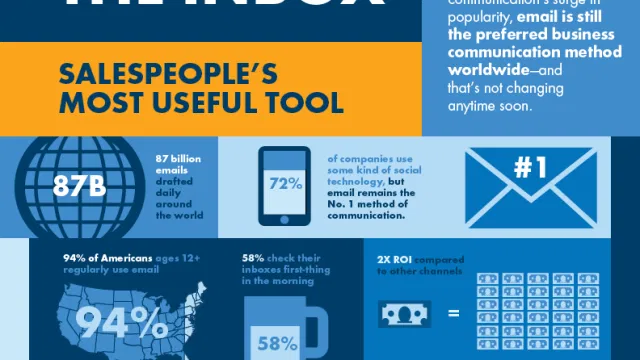This is the most popular content on Martech Zone.
Martech Zone’s Most Popular Articles
-

You Spend 83 Days a Year Emailing
The average salesperson logs over 2,000 hours per year on business communication, mostly on role-specific tasks (39%) and reading/answering emails (28%). While it would seem that social media is becoming the most popular mode of communication, as 72% of companies are now using social media in some form, email is still the top preference among businesses around the world. According…
-

Design a Mobile-Friendly Email
All Internet trends point to enormous growth in how many emails are read on mobile devices. Some stats have shown that 40% of all corporate emails are read on a mobile device. In the last 6 months, reading email on a mobile device is up 150%! Viewing emails on a small screen has it’s difficulties and advantages. Some devices support…
-

Web Testing, Browsers and Resolutions
The team over at Webby Monks have put together this helpful website testing ionfographic (Click through for an interactive infographic). The infographic defines must test browsers, their Operating Systems and resolutions. Here are some associated stats highlighted in the infographic: Mobile Internet Browsing has surpassed 24% share worldwide Windows 7 remains to be the most popular desktop OS with around…
-

Managing Your Application Programming Interface
It’s 2:30AM here in Paris, France… and I can’t sleep so what better to do than to write a blog post! DK New Media has worked recently with two companies recently who have implemented technology to manage their application programming interface (API). APIs have become a powerful and necessary feature to any platform so that marketers can integration and automate…
-

How to Set Email Subscriber Expectations and WIN!
Are your email subscribers clicking through to your websites, ordering your products, or registering for your events, as expected? No? Instead are they simply unresponsive, unsubscribing or (gasp) complaining? If so, perhaps you're not clearly establishing mutual expectations.









